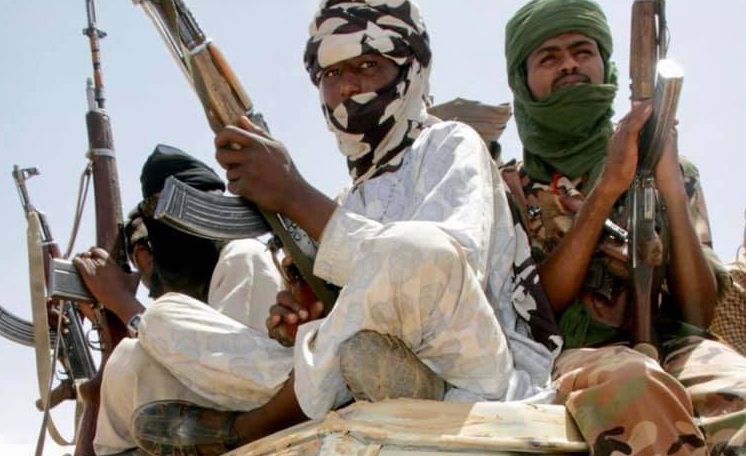Reports
Weaving Its Webs: The Militia’s Strategy.. Hate Speech: A Tool to Fragment Sudan

Sudan Events – Agencies
Amid the destruction engulfing Sudan today, the April 2023 war stands as a pivotal event. It is not merely a military conflict but rather a calculated attempt to reshape the nation.
In a country long plagued by wounds of identity and division, this war strikes as the final blow to a nation struggling against its fate. Yet, behind the roar of artillery and the chaos of destruction, a more intricate story unfolds—a tale of a nation being torn apart, not just by the force of arms, but through a far more insidious and effective weapon: hate speech.
Fragmenting Sudan From Within: The New Players’ Game
From afar, the Sudanese scene may appear as sheer chaos without direction. However, on the ground, a meticulously crafted web is being spun. The Rapid Support Forces (RSF), a militia that emerged from the margins, quickly grasped that destroying Khartoum or controlling Darfur would not suffice to alter the rules of the game. Instead, they turned to something far more impactful and enduring: eroding trust among Sudanese themselves.
This conflict is not merely a battle over geography or power; it is a struggle to redefine Sudan itself. How can a country that has spent decades trying to preserve its fragile unity withstand the corrosive effects of incitement and divisive rhetoric?
The answer lies in a combination of precise planning, decades of accumulated grievances, and the ambitions of certain factions to redraw the map of the nation on its ruins.
Darfur: A Laboratory of Organized Chaos
In western Sudan, Darfur is more than just a war zone—it is a microcosm of what Sudan as a whole could become. Here, guns are not fired indiscriminately but are wielded as part of an organized campaign to reshape the social and demographic fabric. What may appear as random tribal violence is, in reality, a systematic effort to create a new reality.
Imagine a region where inhabitants are forcibly displaced, villages razed, and atrocities committed to embed messages of fear and hatred. This is not just a struggle over land; it is a deliberate effort to sever Darfur from its historical and social roots, making any return to the past impossible.
Khartoum: The Capital as a Stage for Symbolic Collapse
Khartoum is more than just the epicenter of the conflict; it is a symbol of the Sudan many once knew. Yet, this symbol is being deliberately dismantled. The fighting here is not solely about securing strategic locations; it is an attempt to turn the capital into a point of collapse.
Khartoum, once a melting pot of Sudanese diversity, is now being transformed into a theater of chaos and division.
Hate Speech: The Bullet That Never Misses
Here lies the most dangerous weapon of this war: words. While traditional wars are fought with guns and tanks, Sudan’s current conflict heavily relies on hate speech to reshape minds before it reshapes the land.
The RSF has not limited its efforts to battlefield operations; it has launched a propaganda campaign that floods social media and streets with narratives designed to deepen ethnic and tribal divides. What began as a tool for mobilization on the battlefield has evolved into an ideology aimed at destroying any hope for coexistence.
The words being spoken today are not mere slogans; they are daggers piercing the nation’s fabric. Neighbors who once greeted each other warmly now see one another as existential threats. These are not fleeting consequences of war but part of a calculated strategy to dismantle Sudan as an idea before dismantling it as a state.
Who Benefits?
The question is not just, “How did we get here?” but also, “Who stands to gain from this destruction?”
The division of Sudan is not merely a possible outcome of the war; it appears to be an intentional goal, supported by players both inside and outside the country. Domestically, there are factions that view Sudan’s existence as a unified state as a threat to their interests. The greater the chaos, the greater their opportunities to expand their influence at the expense of Sudan’s national identity.
Internationally, Sudan is not just an African country in crisis but a strategically located, resource-rich nation. For regional and global powers, breaking Sudan into smaller entities is a chance to exploit its resources without dealing with a strong, unified state.
Is Division Inevitable?
Today, division seems not only a likely outcome but one that is actively being pursued. Darfur is being torn apart by ethnic cleansing, the east is groaning under marginalization, and Khartoum is being transformed into a symbol of collapse rather than unity.
Most troubling, hate speech has made the idea of a unified Sudan nearly impossible to achieve—even if the war were to end tomorrow. How can a people poisoned by mistrust and hatred rebuild the bonds of trust?
The Question of the Future: Who Writes the Ending?
What is happening in Sudan today is not merely a civil war but a dangerous surgical operation being performed on the body of a nation without anesthesia. The result will not be a simple victory for one side and defeat for the other; it will be a new map drawn on the remains of a state that was once the beating heart of Africa.
Sudan at this moment resembles an open-ended story, but the pen is not solely in Sudanese hands. Hidden players—domestic, regional, and international—are writing the final chapters. The real question we must ask now is: Will we merely witness this ending, or will we play a role in shaping it?
Amid the destruction we see and the unspoken plans in motion, one truth remains: Sudan today is not what it once was, and tomorrow may bring a country entirely unrecognizable from what we know.



